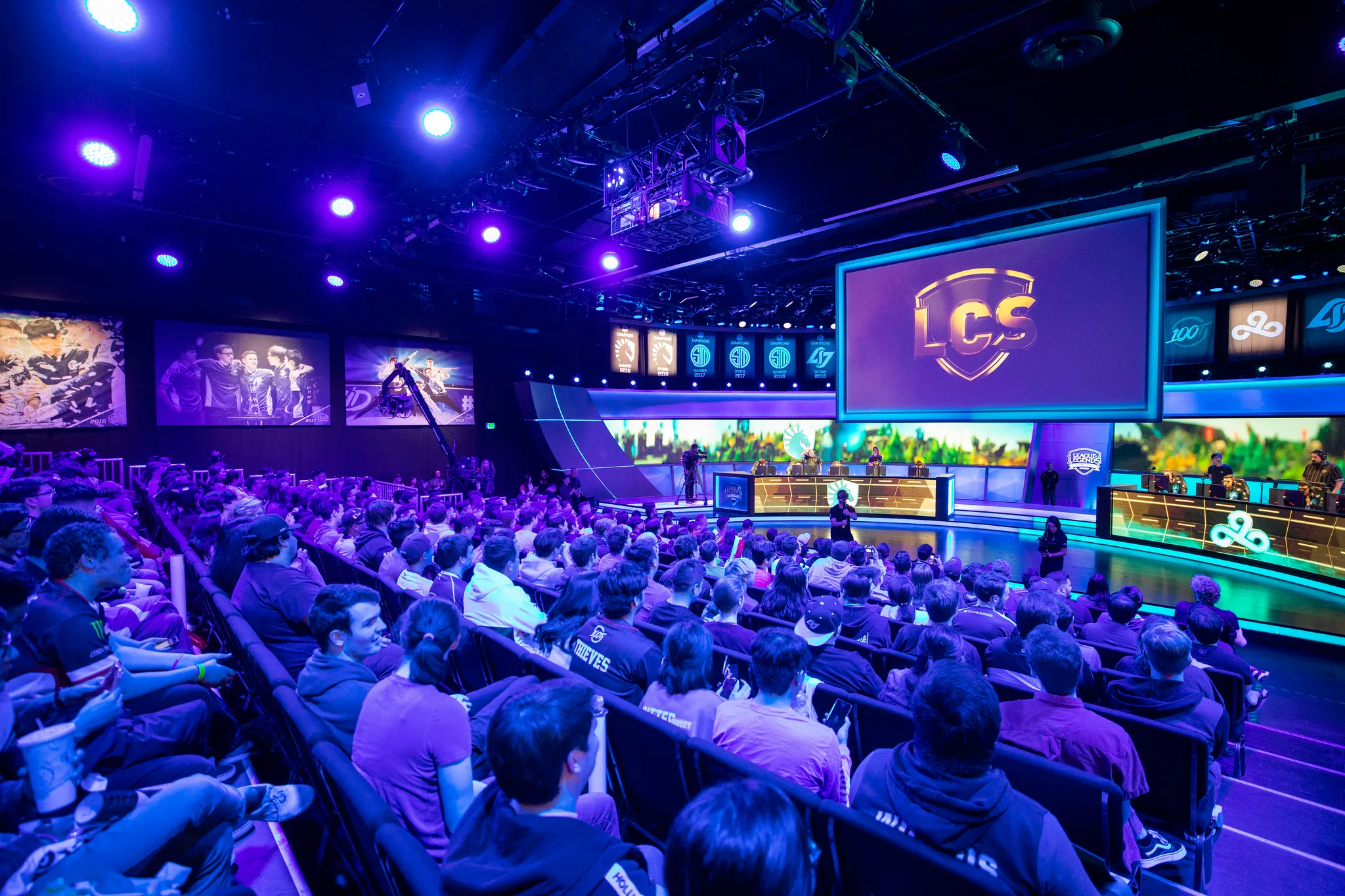We’re just over a year into the operation on the franchised League Championship Series in North America, and the rankings are run by endemic organizations. Team Liquid, TSM, and Cloud9 are in firm control of the 2019 Spring Split, while newer organizations like Clutch Gaming and 100 Thieves struggle to find competitive success.
But according to LCS commissioner Chris Greeley, some of those new organizations have been tremendously successful even if their on-Rift results haven’t been fantastic. Speaking at a panel at SXSW about the creation of the franchised LCS, Greeley called 100 Thieves the “poster child” for a new organization.
That’s high praise considering the extremely competitive nature of both the league right now, as well as the lengthy application process that took place in 2017. According to Greeley, 100 Thieves hit on many of the things Riot wanted to see in a franchising application.
And he thinks that it’s continuing to deliver on its strengths today.
A solid foundation

During the franchising process, Riot looked for four things from potential applicants: A strong ownership profile, a brand strategy, an ability to monetize that brand, and independent financial resources—enough to fund operations for years without league support.
100 Thieves centered its application around popular Call of Duty player and content creator Matthew “Nadeshot” Haag, and it resonated extremely well with Riot officials. Nadeshot’s lifestyle brand had already achieved strong brand recognition.
“A lot of people pitched us on influencers—100 Thieves was the org that had the single best application,” Greeley said. “Having [Nadeshot] come in and lay out his content plan, it was authentic, and they [have] really delivered.”
Greeley and his team sorted through a lot of applications and in the end, sought to find the group of owners that would make the best long-term partners for the league. At first, money wasn’t a primary concern. After all, the first 10 LCS slots sold for just $10 million each, which pales in comparison to Overwatch League’s starting rate of $20 million.
More recently, valuations have gone even higher. The second season of Overwatch League brought an expansion in which slots reportedly sold for $30 to $60 million. And for Call of Duty, Nadeshot’s original game, its franchising model will reportedly feature a $25 million buy-in.
In light of those figures, how does Riot feel about its team valuations?
The numbers

When asked about Riot’s comparatively lower franchise fee, Greeley noted that the prices were set intentionally.
“We spent a lot of time thinking through that number,” Greeley said. “We wanted to be able to pick our partners. We didn’t want the price to scare partners away and we didn’t want the price to bring with it the expectation of a level of control in the process that didn’t exist. $10 million was an easy call.”
He did, however, indicate that Riot’s preliminary plans for expansion would price additional slots in the $25 to $40 million range. The company has ongoing discussions with its owners about the mechanics and timing of league expansion, but doesn’t see that type of growth in the near future.
For now, the company is focused on helping make sure its league is running as smooth as possible.
Not profitable, sustainable
Greeley was careful that, to Riot, a successful league isn’t necessarily one that’s immediately profitable. Perhaps the lower franchise fee gives the LCS some breathing room in that regard.
Instead, Riot is focused on helping its teams and players put in place sustainable processes. Things like revenue sharing aren’t meant to make everyone rich, but to help teams make decisions that benefit the whole league, rather than solely themselves.
A good example is Riot’s approach to sponsorships. In contrast to Overwatch League, which has more league sponsors that crowd out individual team sponsorships, Riot wants its teams to lead the charge. It has the ability to exclude product categories for league sponsorships, but so far, it has done so with only one: Official team jerseys. Riot still lets teams sell reproductions of them on their websites, but the official ones are procured through the league’s partnership with We Are Nations.
“Our team agreements give us an incredible array of rights that we don’t exercise,” Greeley said. “When we built the league, we wanted to bring in subject matter expertise. We’ve talked about a lot of hot-button topics in esports [like] regionalization and expansion. It’s hard for me to sit down with the [people] who run the Warriors, Rockets, and Madison Square Garden and tell them that I know more than they do about how to run a venue and how to monetize that.”
This model relies on the teams to provide their own expertise, which may be a sign that Riot itself doesn’t want to invest resources in this type of tedious league building. There are risks—having 10 teams compete for partners could dilute the bargaining power of the group. And while the owners Riot brought in do have tremendous expertise, many acquired teams in other sports at a more mature phase in the lifecycle for those leagues. It remains to be seen how much value they can provide for a much earlier-stage league like the LCS.
That’s the tough thing with leagues like the LCS—esports has grown so fast that it seems like the industry should be able to skip some of the steps other sports leagues have gone through. But there simply isn’t a blueprint for growing a league at an extremely fast tempo. Because of that, it may look like 100 Thieves are successful today, but we don’t know what we’ll think five, 10, or more years from now.
What is clear, though, is that the decisions Greeley and his owner-partners make today will have a tremendous impact on that future.
All photos via Riot Games.


